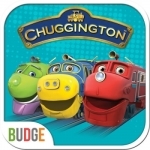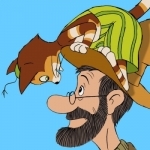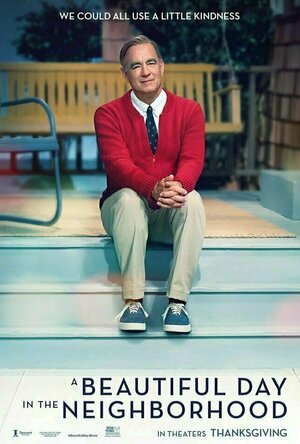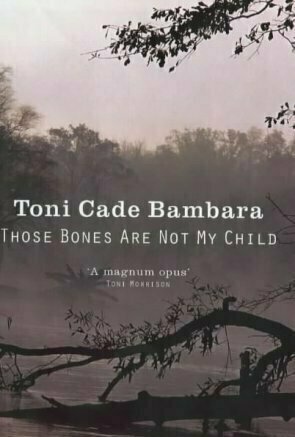
Littlest Pet Shop: Pet Style
Book and Entertainment
App
Are you ready to save the LITTLEST PET SHOP by putting on a fabulous, fur-tastic fashion show? You...
BankofMarquis (1832 KP) rated A Beautiful Day in the Neighborhood (2019) in Movies
Dec 6, 2019
Tom Hanks, of course, stars as Mr. Rogers - the beloved TV Host of the beloved children's show MR. ROGERS NEIGHBORHOOD and he does a remarkable job of bringing this kind gentle soul to life. Hanks embodies all of what is good and right to this character, while still making him a real person. Hanks, no doubt, will be named an Oscar nominee for this performance - but it is in what category that might be a surprise to most.
For, it will be as Supporting (not Lead) Actor for this is NOT a movie ABOUT Mr. Rogers. It is a movie that Mr. Rogers plays a strong Supporting part.
This film is about the real, true-to-life relationship that Fred Rogers forged with troubled writer Lloyd Vogel (Matthew Rhys). Vogel is assigned by his boss at Esquire (Christine Lahti - who it was GREAT to see in a film) to do a quick "puff piece" on Rogers. This hard-boiled reporter is hell-bent on peeling the layers back on this man. The surface of Mr. Rogers is just "too good to be true" to this writer. What happens, of course, is that Fred Rogers peels back the layers on Vogel to help him understand his troubled relationship with his father (Chris Cooper) - and it is this relationship that is at the heart of this movie.
And heart is what is at the center of this film. This film is filled with love, understanding, warmth and HEART in abundance. Fred Rogers helps Lloyd Vogel to slow down and understand - and deal with - his feelings that are impeding his relationship with his father. And it is this heart and warmth that touched me. I was brought to the edge of tears more than once during the course of the 1 hour and 49 minute length of this film (and I am not a cryer) it was that well done - and emotional - without being cloying.
Credit Writers Micah Fitzerman-Blue and Noah Harpster (both of TV's TRANSPARENT) for adapting Tom Junod's real life Esquire article on Rogers in such a way that it is powerful, thoughtful and effective. They accomplished this by placing the events of this film, loosely, in the format of Rogers' beloved TV show and it worked well.
What also worked well was the Direction of Marielle Heller (CAN YOU EVER FORGIVE ME) like her previous film (which garnered Melissa McCarthy a well deserved Oscar nomination), Heller keeps her camera relatively still and lets her actors act - relying on tight. lingering close-ups and lingering, quiet pauses for the full effect of the emotions behind the words to land on the audience and resonate.
She would not be able to do this without a strong cast - and a strong cast she has. Besides Hanks, Matthew Rhys (TV's THE AMERICANS) is a steady calm. angry presence that anchors the film in the "no way Mr. Rogers can be that nice" mindset that almost all of us have at the beginning of the film to be slowly peeled away to reveal what is really causing the anger and cynicism emitting from his character. The always reliable Chris Cooper (Oscar winner for ADAPTATION back in 2002) brings pathos and regret as Jerry Vogel, Lloyds father. The relationship between these two is the balancing point of this film and it is balanced well. They are joined by a strong list of Supporting Actors (like Enrico Colantoni, Susan Kelechi Watson and Wendy Makkena) that bring strength and warmth to the proceedings without stealing focus on the main players. They all are SUPPORTING players and they SUPPORT the events of the film wonderfully
I strongly urge you to see this film in a "closed environment" - a movie theater, in a darkened room - without distractions (turn off your phone, close the shades if you are home) and let the warmth, gentleness, humanity and slow-pace wash over you. You'll be glad you did.
Letter Grade: A- (Did I mention that this film is paced VERY slowly)
8 stars (out of 10) and you can take that to the Bank(ofMarquis)

Chuggington Traintastic Adventures Free – A Train Set Game for Kids
Games and Education
App
Budge Studios™ presents Chuggington Traintastic Adventures! Traintastic Adventures await in this...

Pettersson und Findus
Games and Entertainment
App
Big play fun with Pettson and Findus! The old, inventive Pettson who lives with Findus - his...

Green Screen by Do Ink
Education and Photo & Video
App
The #1 Green Screen app for the iPad in Education, now available for the iPhone too! Green Screen by...
Bob Mann (459 KP) rated A Beautiful Day in the Neighborhood (2019) in Movies
Dec 13, 2019
Who WAS Fred Rogers? Based on a true story this movie very quickly makes you realise that Fred Rogers, who died in 2003, was an American legend. This is supported by the GLOWING reviews here on IMDB by US viewers. Rogers was a children's TV presenter that used puppets and song to help children work through their fears and psychological issues. I suspect, like me, most Brits would say "WHO?" (Just as if a 60's born Brit like me saying "Let's look through the arched window" will similarly get a "WHAT?" from nearly all Americans!)
Here the story revolves not around Fred (Tom Hanks) helping a child with issues, but with Fred's fixation with 'Esquire' journo Lloyd Vogel (Matthew Rhys), who is fighting his own demons of anger, resentment and pain. For Lloyd is struggling not only with his feelings about fatherhood, with the normal strains that is placing on the relationship with wife and mother Andrea (Susan Kelechi Watson), but also with the reemergence on the scene of his estranged and hard-drinking father Jerry (Chris Cooper).
The movie starts (and continues) with model sets reminiscent of the brilliantly barmy "Welcome to Marwen" and (the rather more subtle) "Game Night". Fun is had with matchbox-car freeways and planes flying off and clunking down on model runways.
We join Mr Rogers on set filming his series: and the movie sloooooows to match Rogers' leisurely pace. This was a movie I went into completely blind (which is unusual for me): I knew precisely zip about it. No knowledge of Rogers. No knowledge of the story. No sight of the trailer. Nothing. So these opening scenes were a real "WTF" moment as my brain struggled to work out what the story was all about.
There was undeniably something creepy about seeing the saintly Fred Rogers engaging with sick and vulnerable children. And I realised just what damage the likes of the convicted-paedophiles Jimmy Saville, Stuart Hall and Rolf Harris have done to my suspicions against all such entertainers. I feared - without any background knowledge on Rogers - that the story would take a darker turn. But no! That's not the story....
For as mentioned earlier, this is the story of Lloyd. And it's a relatively simple and linear story of familial stress that we've seen in movies throughout the decades. Whether you will buy into this story-within-the-story, or not, will flavour your overall enjoyment of the film.
Many who are into analysis and 'talking treatments' will - I think - appreciate the script. But I personally didn't really warm to any of the players - other than Rogers - so this was a negative for me. And I found the pace so slow that I ended up a bit fidgety and bored moving into the second reel of the film. Two women got up and walked out at that point - - it was clearly not for them (this was a Cineworld "Unlimited" pre-release screening).
The third reel rather pulled it together again, and established an "It's a Wonderful Life" style of feelgood that I warmed to much more.
This is a movie I predict the Academy will love. And everyone loves Hanks already. Read the tea-leaves. It's a brilliant performance from Hanks in its stillness and quietness.
No more so than in one particular scene....
This is the follow up movie from Marielle Heller to the impressive "Can You Ever Forgive Me?". And this particular scene - let's call it the "Anti-When-Harry-Met-Sally" moment - is a massively brave and striking piece of cinema.
It's truly extraordinary and worth the price of a ticket alone.
In summary, I enjoyed this movie, primarily for watching the master Hanks at work. The pacing for me was somewhat off though. But I can't be overly critical of such a warm-hearted movie. I predict you will see this and go home with a big dose of the warm-fuzzies.
See here for the full graphical review - https://bob-the-movie-man.com/2019/12/12/one-manns-movies-film-review-a-beautiful-day-in-the-neighborhood-2019/
Hadley (567 KP) rated Those Bones Are Not My Child in Books
Nov 12, 2019
Bambara writes not in a normal narrative - - - just telling a story from specific viewpoints, but she often breaks off into smash poetry to depict a character's state-of-mind, which, sometimes can be off putting for the reader, breaking the flow of the story. Yet, the use of smash poetry combined with the era and the heart breaking subject at hand, separates Those Bones Are Not My Child from every True Crime book I have ever read. But a note for fans of True Crime, this story is from the view point of the victims' families and the search they went through to try and catch the murderer(s), unlike most TC books, which follow the police through the investigation leading to, usually, the capture of the perpetrator. From living in Atlanta during the time of the murders, Bambara was able to reconstruct the life of a black family in 1980's Georgia, while focusing on the effect these terrible crimes had on the surrounding community. Bambara did an amazing job on what most writers cannot.
The amount of characters, specifically the fictional ones, are very well created. She describes just enough to give readers the ability to tell them apart, showing every now and then from their own viewpoints. Out of all the characters, I came to really like Zala's two other children: Kenti and Kofi. One particular scene shows the strain of Sonny's disappearance on their family: " Zala parked the comb again and sat back. 'Listen, you two.' Kofi dropped down onto his knees. 'The police and the newspapers don't know what the hell is going on, so they feel stupid, because they're supposed to know, they're trained to know, they're paid to know. It's their job. Understand? But it's hard for grown-ups to admit they're stupid, especially if they're professionals like police and reporters. So they blame the children. Or they ignore them and fill up the papers with the hostages in Iran. Understand? And now... Jesus... they've got people calling those kids juvenile delinquents.'
'Don't cry.' Kenti tried to lean into her lap and got pushed away.
'They don't know a damn thing and they act like they don't want to know. So they blame the kids 'cause they can't speak up for themselves. They say the kids had no business being outdoors, getting themselves in trouble.'
'You let us go outdoors.'
'Of course I do, baby. We go lots of places, 'cause a lot of people fought hard for our right to go any damn where we please. But when the children go out like they've a right to and some maniac grabs them, then it's the children's fault or the parents who should've been watching every minute, like we don't have to work like dogs just to put food on the table.'
Kofi walked on his knees towards the bed, but he didn't lean on her like he wanted 'cause she might push him away. So he just put his hand on the mattress next to hers."
During the Atlanta Child Murders, victims were random, except for that they were children from the same neighborhood, and they were African-American. At first, police didn't believe a serial murderer was going around abducting children, but rather that 'poor, broken' families were killing their own. In the Prologue, Bambara shows that the victims' families and private detectives came up with more ideas of the motive than the police did:
" White cops taking license in Black neighborhoods.
The Klan and other Nazi thugs on the rampage.
Diabolical scientists experimenting on Third World people.
Demonic cults engaging in human sacrifices.
A 'Nam vet unable to make the transition.
UFO aliens conducting exploratory surgery.
Whites avenging Dewey Baugus, a white youth beaten to death in spring '79, allegedly by Black youths.
Parents of a raped child running amok with 'justice.'
Porno filmmakers doing snuff flicks for entertainment.
A band of child molesters covering their tracks.
New drug forces killing the young (unwitting?) couriers of the old in a bid for turf.
Unreconstructed peckerwoods trying to topple the Black administration.
Plantation kidnappers of slave labor issuing the pink slip.
White mercenaries using Black targets to train death squadrons for overseas jobs and for domestic wars to come. "
All of these theories are explored with evidence in Those Bones Are Not My Child. One scene in Part III, Zala's cop friend, B.J. shows up to her house to tell her to stop bringing attention to the investigation, " 'That Eubanks woman - - - your husband's friend? - - - she said you were bringing in the TV networks to blow the case open. I thought we had an agreement to keep each other informed. This morning I find out through the grapevine that you parents got a medium stashed in a hotel here in town, some woman who's been making headlines up north with cases that supposedly have the authorities stumped. If you knew how much work has been done on this case - - - no, listen, don't interrupt me. Then I find out - - - and not from you - - - that some of you parents are planning to tour the country cracking on the investigation. That's not too smart. And you should have told me.' " These two may have been fictional characters, but in Bambara's Acknowledgments, she states that all scenarios were true, and that she made B.J. to tell about the actual police officers who were involved with the investigation.
The tension between the police and the public is felt throughout the entire story. Despite all of the work the citizen task force put in, police arrested a man named Wayne Williams for the murder of two adult victims (who, due to their mental age, which was stated to be that of children, were placed on the victims' list of the Atlanta Child Murders): " Wayne Williams, charged with the murder of twenty-seven-year-old Nathaniel Cater and implicated in the murder of the other adults and children on the official list..." Zala, having worked for almost a year at the STOP offices, she, along with most of the community, doubt that Williams was a lone killer or even the killer at all. Williams never stood trial for the childrens' murders, but the police informed the public that he did it, case closed - - - although, after Williams' arrest, children were still being abducted and their bodies were still being found. Even after Williams' trial and the guilty verdict for two adult victims, some people stuck around to continue to investigate and claim Williams a 'scapegoat' of politics: " There were still pockets of interest and people who wouldn't let the case go. James Baldwin had been coming to town off and on; a book was rumored. Sondra O'Neale, the Emory University professor, hadn't abandoned her research, either. From time to time, TV and movie types were in the city poking around for an angle. Camille Bell was moving to Tallahassee to write up the case from the point of view of the STOP committee. The vets had taken over The Call now that Speaker was working full-time with the Central American Committee. The Revolutionary Communist Party kept running pieces on the case in the Revolutionary Worker. Whenever Abby Mann sent down a point man for his proposed TV docudrama, the Atlanta officials and civil rights leaders would go off the deep end. " At the end of it all, the questions still remain: did Williams kill all of those children by himself? Was he part of a pornographic cult that killed the children? Or is Williams completely innocent, and the murderer(s) are still out there? In Those Bones Are Not My Child, I guarantee you will be left questioning if the police were right.
All in all, the writing transitions can become confusing sometimes, especially the interludes of smash poetry, but I highly recommend this book to people who like the True Crime genre, especially of any interest in this specific case.

